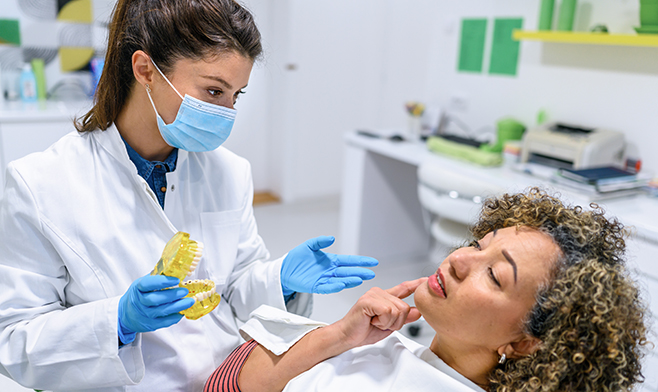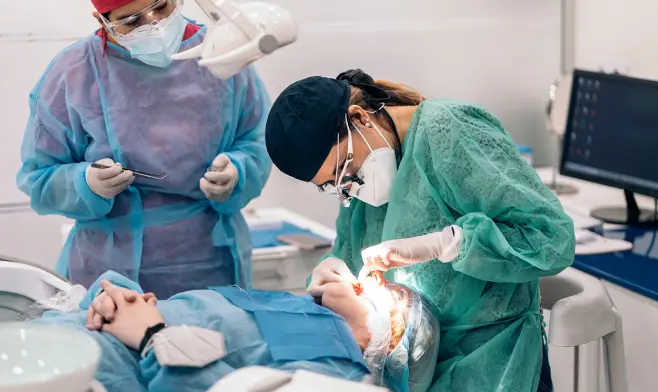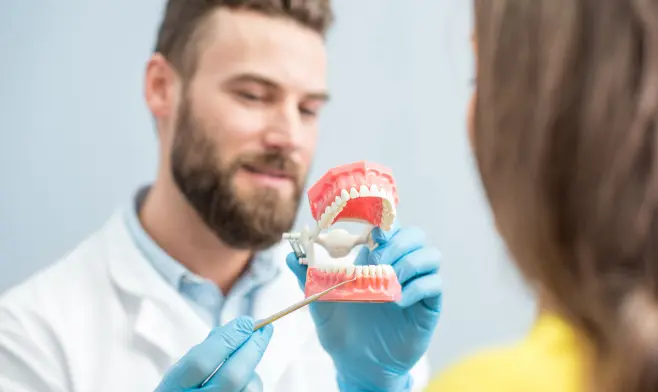Periodontitis, also known as gum disease, affects millions of individuals worldwide. It is a complex oral condition characterized by inflammation and infection of the gums, which can lead to tooth loss if left untreated.
While poor oral hygiene and certain lifestyle factors are often associated with periodontitis, recent research has shed light on the role of genetics in the development and progression of this disease. Here is everything you should know when it comes to the influence of genetics on periodontitis, as well as the implications it holds for understanding and managing this oral health condition.
Genetic Factors in Periodontitis
Periodontal disease is characterized by gingival inflammation and bone resorption. Genetic factors play a critical role in half of all cases of periodontal disease that may be influenced by heredity, so your genetic makeup truly does have the potential to make you more susceptible to periodontitis.
Numerous genetic factors contribute to periodontitis, and specific gene variants have been identified as potential risk factors. These variants affect various aspects of the immune response, inflammation regulation, and tissue remodeling, all of which are critical to maintaining periodontal health.
Genetics also determines how much mineral saliva you produce, which is what aids in helping your teeth stay strong and healthy, and fight off acid erosion.
Types of Periodontitis
There are two main types of periodontitis: chronic and aggressive periodontitis. The two share major environmental and genetic risk factors, and some clinicians find the differential diagnosis between these two diseases difficult – sometimes even impossible. Smoking, uncontrolled diabetes, poor oral hygiene, and psychological factors seem to play a role in both chronic and aggressive periodontitis.
Aggressive periodontitis
Aggressive periodontitis is a condition where patients rapidly lose bone around their teeth, which suggests a significant genetic component.
Chronic periodontitis
Chronic periodontitis is caused by large amounts of dental plaque that accumulate over time. It’s typically caused by poor brushing and flossing habits that allow plaque—a sticky film of bacteria—to build up on the teeth and harden. In advanced stages, periodontal disease can lead to sore, bleeding gums; painful chewing problems; and even tooth loss.
Impact of Genetics on Gingival Health
Genetic factors play a critical role in half of all periodontal disease cases, and up to 30% of the population may have some genetic susceptibility to periodontal disease. For example, some people with severe periodontal disease have genetic factors that affect the immune system. Such individuals are up to 20 times more likely to develop advanced periodontitis than those without these genetic factors.
According to the American Dental Association, genetics is a risk factor for developing gum disease – so if your family has a history of gum disease, it’s likely you will experience gum problems at some point as well. Luckily, being proactive and taking proper precautions can help you prevent it.
Preventive Measures for Periodontal Health
Maintaining good periodontal health is essential for overall oral health and preventing the development and progression of periodontitis. While genetics can influence an individual’s susceptibility to gum disease, there are several preventive measures that everyone can take to promote healthy gums. Here are some key preventive measures for periodontal health:
- Proper oral hygiene: Brushing your teeth at least twice a day and flossing daily are fundamental steps in preventing gum disease. Use a soft-bristle toothbrush and fluoride toothpaste to gently clean the teeth and along the gumline, and floss well between teeth.
- Regular dental check-ups: Regular dental visits are crucial for preventive care. Dentists and dental hygienists can detect early signs of gum disease and provide professional cleaning to remove plaque and tartar buildup.
- Healthy diet: A balanced diet that includes a variety of fruits, vegetables, whole grains, lean proteins, and low-fat dairy products can contribute to good periodontal health. Additionally, maintaining proper hydration by drinking water throughout the day promotes saliva production, which aids in flushing away bacteria and food particles.
Here at Poway Perio, we are happy to help you fight periodontitis and get your teeth and gums back to good health with regular periodontal maintenance. If you have more questions or would like to book a consultation, we’re happy to discuss your situation. Just give us a call at 858-679-0142.





